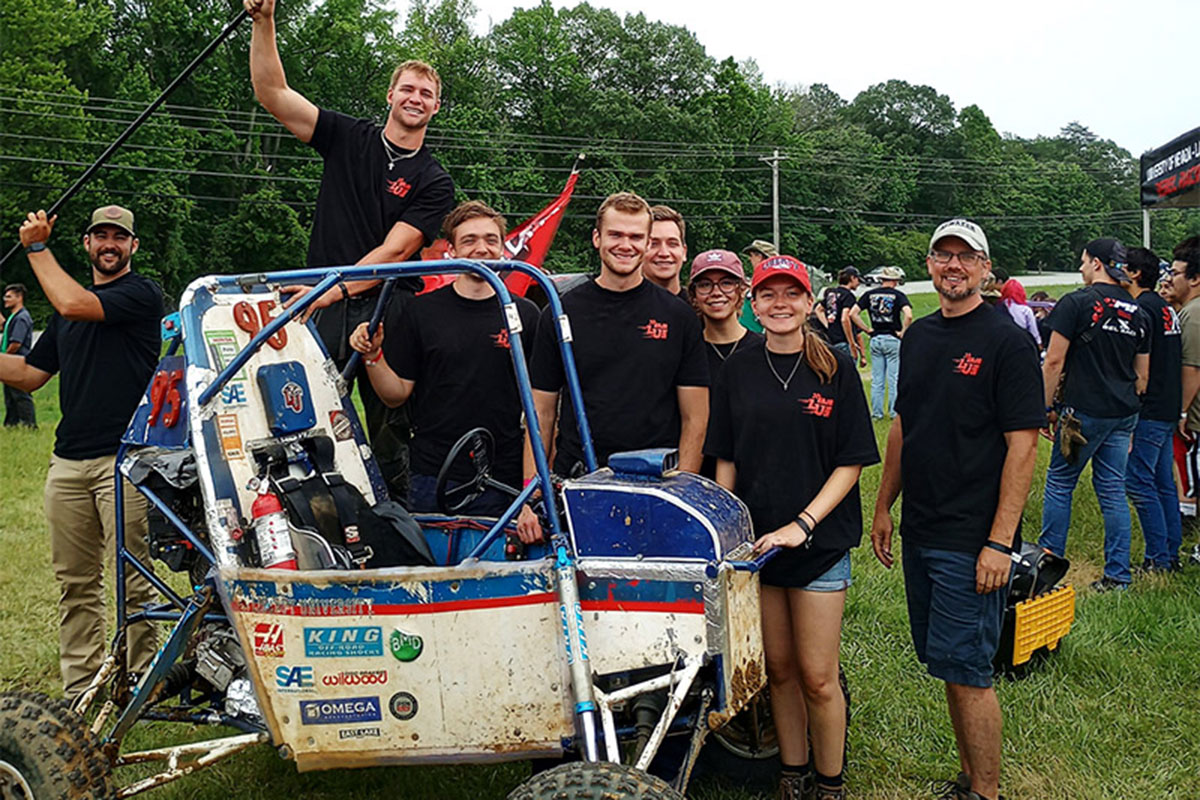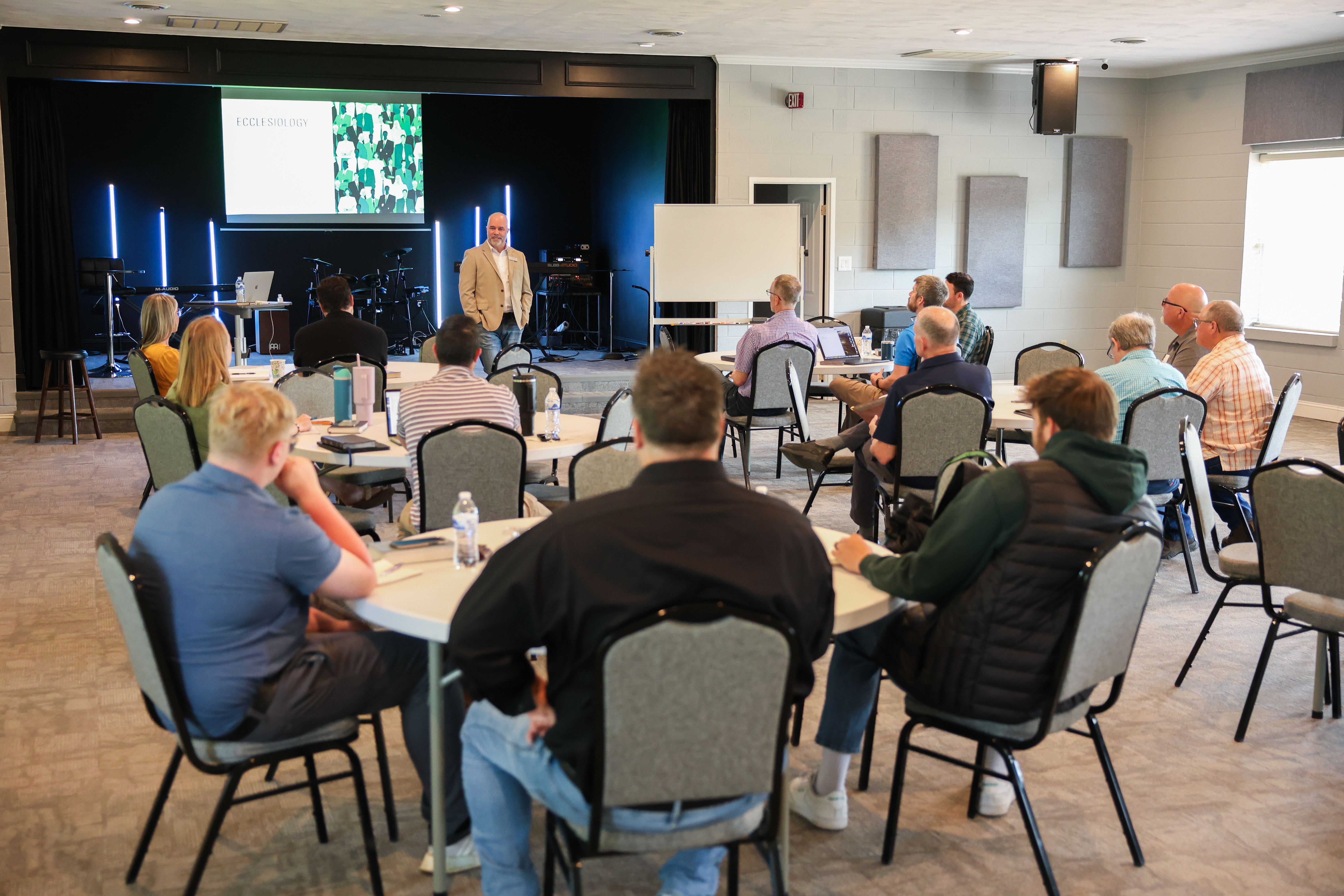Search News Archives
Filter News Articles
Additional Navigation
School of Engineering uses robotics to ignite interest in program
June 5, 2012 : By Drew Menard/Liberty University News Service
Through events like the VEX Robotics competition, which has drawn as many as 400 high school students from across the eastern United States, Liberty University is seeking to encourage interest in the fields of science, technology, engineering and mathematics (commonly referred to as STEM) and is promoting its young, yet booming School of Engineering and Computational Sciences.

“The number of students in engineering and technology programs have been declining for years,” said Scott Pleasants, director of Engineering Technology at Liberty. “It is important to our nation that we help educate and to foster interest in these areas.”
About 300 high school students participated in the regional VEX Robotics competition at Liberty Christian Academy on March 3, hosted by the School of Engineering and Computational Sciences.
A total of 32 teams participated in the event, which included a homeschool team that went on to place 16th in their division at the world championships in Anaheim, Calif. LCA had two teams compete.
Liberty awarded $12,000 in scholarships at the competition. Additionally, approximately $40,000 worth of awards was given out by sponsors, including the U.S. Army, Cisco, Microsoft, Hewlett-Packard Co. and engineering firms like Areva, B&W, AMTI, Innovative Wireless Technologies Inc., Simventions and Virginia’s Region 2000 Technology Council. One student received a free week at Space Camp.
“What is really amazing is that these types of programs not only help to ignite that interest in STEM, but it also helps us to show the young people that Liberty University is at the forefront of technology and that we are impacting the world for Christ,” Pleasants said.
Locally, the School of Engineering and Computational Sciences has developed a relationship with LCA, helping to strengthen the high school’s educational experience by adding robotics and computing to its curriculum and, hopefully, encouraging interest in STEM fields as a result.
John Patterson, superintendent of LCA, said the program exceeded his expectations this year, with the number of students participating and the level of competition.
He said Stephen Welsch, a Liberty engineering student and graduate of LCA who coached the students this year, played a large role in the program’s success.

“(Welsch) also had a direct impact on many of these kids’ Christian walks, which is of even greater importance to us,” Patterson said.
Recently, Pleasants presented a VEX Robotics Kit to Patterson in appreciation for the use of their facilities for the last two years.
“LCA facilities are perfect for this event and the engineering school appreciates their generosity,” Pleasants said.
Patterson said LCA would not have a robotics program if it was not for the support of Liberty’s engineering program.
“Through this program we have been able to reach a clientele of kids that maybe were not interested in anything extracurricular at that time. And now these kids, through this program, have found what their niche is, almost like how a football player figures out he loves football.”
Pleasants said the competition not only helps Liberty University, “but it is helping to ignite a passion for engineering and technology among young people in the region and across Virginia. Because of our Christian mission, STEM opens new doors for us to demonstrate the love of Christ, here and around the globe.”
“Engineering and Computing professionals are service-driven and creative people,” he said. “They push society forward creating technology from a blank canvas, with a goal of helping humanity.”
- Liberty’s School of Engineering and Computational Sciences launched in 2007 (formerly the Institute for Information Technology) and has seven degree offerings. Its purpose is to develop Christ-centered men and women with the values, knowledge and skills necessary to impact tomorrow’s computing and technology-related disciplines.


